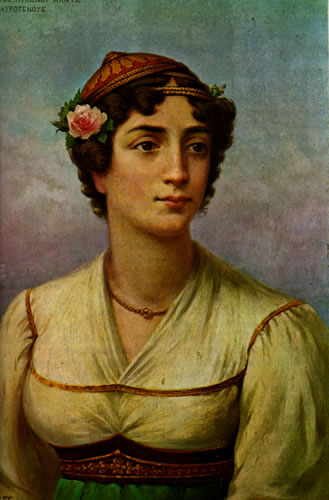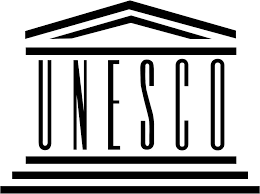Overview (Anavlemma) March 2024 – by Theofani Karabatsas
“I will praise our women and swear by their name” – Dionysios Solomos
On the occasion of International Women’s Day , the Australian Institute of Macedonian Studies (AIMS) and the Australian Institute for Hellenic Research (AIHR) greet the ladies of the Greek Diaspora and wish them a happy International Women’s Day.
The month of March for every Greek everywhere on the globe is a month of patriotism and reflection. Every patriot, intentionally or unwittingly, reminisces the past events of the fighters in general, the heroes and heroines who with their sacrifice and superhuman struggles saved the Greek Nation. In the struggle, not only the precious lives of fighters were sacrificed, but also the many lost fortunes.
The admirable work of women in the struggle for liberation should not be forgotten by any Greek today. It is the duty of all Greeks to always look forward to the turn of time and admire the achievements of the crowned Heroines.
“Good deeds will slowly die if they are not spoken about” – Pindaros
In the context of the double celebrations of March 2024, International Women’s Day and the beginning of the struggle for the liberation of the homeland of the Greeks from the long-standing yolk of the Turks, AIMS can only look forward to one of the many laurel-crowned heroines of the struggle, heroines such as Manto Mavrogenous who, with her unwavering faith in the struggle, sacrificed all her property and dowry for the Freedom of Greece.

Through the moral exaltation, heroism, love for the homeland, and the greatness of the self-denial of 1821, the laurel-crowned heroic figure of this indomitable heroine, Manto Magdalene Mavrogenous, emerges as a model.
A model of heroism, self-sacrifice, selflessness, and love for the enslaved homeland, which with its ideal example inspired and contributed to the Rebirth of the Nation, not only the Greek women but also to a certain extent the philhellene intellectuals of Europe.
It is remarkable and must be documented that Manto sacrificed all her huge fortune of seven hundred thousand (700,000) kurus for the struggle.
Gold coins, real estate of that time, jewellery of great value, but above all she sacrificed her health and her youth!
She chartered ships to equip the fleet.
She organized infantry divisions in the Peloponnese.
She helped women and children after the holocaust of Mesolonghi, gave a helping hand to the island of Samos, to mothers and children who were hungry, took part in many battles, and we should admit that the Governor of Greece, Ioannis Kapodistrias, deservedly awarded her the highest military honor of Honorary Lieutenant General of Greece, an honor she carried until the end of her life.
It should be additionally noted that she is the only militant woman to carry this honor.
The village of Marmara on the island of Paros prides itself on the great and unsurpassed heroine.
Manto Mavrogenous was born in 1796 or 1797, daughter of an aristocratic family and left her last breath in Paros in 1848 in July, humiliated and very poor, at the age of 52. Mantou’s father was a prominent member of the Society of Friends (Filiki Eteria), and in 1820 he also made Manto a member of the Society.
The square of the island of Mykonos bears the marble bust and name of the worthy Greek woman.
It should also be noted that for a short time this great heroine was almost entirely forgotten.
Fortunately, the philhellenes of Europe, such as the Philhellene Jules in 1898, said with wonder that “it is a wonder that such a woman was completely forgotten by all Greek historians”.
Also, T. Ginouvier, French historian and writer in 1825 published his book entitled “Mavrogénie: ou, L’Héroïne de la Grèce”. T. Ginouvier’s book is a great success and is being republished. Manto, now the heroine of Greece, has become famous across Europe.
The painter Adam Friedel painted her portrait which has made Manto Mavrogenous a personality in Europe and is included among the 24 great portraits of the leaders of the Greek Revolution.
In 1896, Theodore Blancard published in French his biography of Manto “Les Mavrogenies”. The biography was republished in 1909.
Characteristic is Manto’s ardent passion for the liberation of Greece from the Ottoman yoke, which is once again highlighted by the letter to the poet Rembeau.
Manto sent a letter to the poet Rembeau, which, among other things, explained honestly and with an ageless patriotic feeling that:
“I don’t care what happens, if my homeland is to be liberated, when I have used everything I can spare for the sacred cause of freedom I will run to the camp of the Greeks to encourage them with my decision to die if necessary for freedom”.
Manto lived in a very turbulent period, she was misunderstood by many strong-men of her time and especially by Ioannis Kolettis.
Before her death, Manto wrote to the then Governor of Greece, Ioannis Kapodistrias:
“Lord, judge those who wrong me, who battle me, rule over the Kings”.
Outlining the life of Manto Mavrogenous, we could paint her as a woman as it is described, Tall and brave-hearted, raised in a culturally and socially advanced environment with “education” which led her to a European orientation and knowledge of foreign languages, skills that allowed her to communicate with the countries of Europe, and to proclaim the National Uprising of Greece by awakening the Europeans to the enslaved conditions of the Greeks.
A woman who did not hesitate in the face of any danger but resisted strongly all the adversities of her life.
A woman who does not fit into a painting frame, nor into a carved portrait.
An example of a woman and a shining beacon that all Greek women of the next generations should follow.
Today, in the 21st century, our homeland does not call us to “fight” with “shotguns and cartridges”. We have a solid legacy and we have a unique weapon, Greek culture, which other countries around the world do not have. It would be desirable for us women to become preachers of this civilization in order to glorify Greece everywhere. It is the least tribute we could offer to the admirable and unsurpassed Heroine Manto Magdalene Mavrogenous.
“It is useful to remember the good works of great women. It is as if we are resurrecting them, bringing them to us, so that they can support us, in our own noble struggles, since we women, as creators and craftsmen of life, have a duty – and we can – to fight our own battle, in the patriotic, cultural and humanitarian fields for a more morally calm and happy world, where among individuals and peoples, freedom, love, law and peace will have a state”. (Athena Tzinikou Kakoulis 1986).
Sources:
• Excerpt: Theofani Karabatsas lecture; 12/2/2013
• P.N. Avramopoulos. https://panosavramopoulos.blogspot.com; 24/5/2021
• Athena Tzinikou Kakoulis. The Macedonian woman in legend and history; 1986



1 Comment
Vasilis · 11 March 2024 at 10:11 pm
In a poignant tribute penned by Theofani Karabatsas, the article illuminates the extraordinary life of Manto Mavrogenous, a fearless heroine of the Greek Revolution. Through Theofani’s vivid narrative, readers are transported to a tumultuous era where Manto Mavrogenous’ unwavering courage and selflessness shone brightest. Sacrificing her vast fortune and health for the cause of Greek liberation, Manto’s story resonates as a beacon of hope and inspiration. Theofani skillfully captures Manto’s enduring legacy, immortalizing her in marble busts and biographies across Europe. As readers journey through Theofanis’ words, they are not only enlightened about Manto’s remarkable journey but also inspired to emulate her example. Such a heartfelt portrayal serves as a reminder of the transformative impact that one individual can have on history, urging us all to dare greatly and leave an indelible mark on the tapestry of time. Well done Theofani!